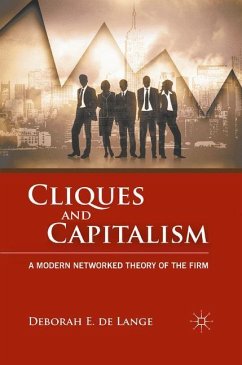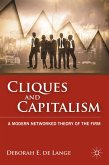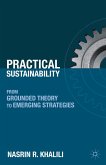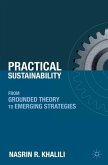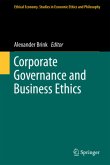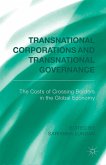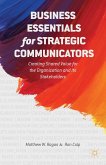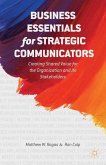De Lange suggests a new contextually linked building block model to develop theories of the firm in the field of strategy and organizations. Using this approach, she proposes two models: one that is a realistic American version and another that is a futuristic sustainable model. Both are new networked models that integrate current theories; a review of international corporate governance supports the sustainable firm that solves problems of the current one. Through a revised theoretical lens, the book answers a provocative question surrounding modern corporate America: Who wields the power? In this investigative look at the institutional mechanisms behind who is truly running the show, Cliques and Capitalism seeks to not only explain why the current corporate system fails to function well, but also offers solutions for improved corporate governance through a new sustainable model.
"The financial crisis has brought about a great deal of reflection, about the efficiency of markets, the effectiveness of governments in smoothing economic cycles, and the ability and willingness of profit-oriented actors to police themselves. Cliques and Capitalism contributes to this reflection by thoughtfully critiquing the American model of corporate governance: Did it contribute to the crisis? Has it outlived its usefulness? Is the worst yet to come? de Lange suggests yes, yes, and perhaps yes. Drawing on theory and a variety of practices from around the world, she also proposes a 'sustainable' model of corporate governance that might avert future problems. But can we get from here to there?" - Olav Sorenson, Professor, Yale School of Management
''Too big to fail' became the mantra of the recent financial crises on Wall Street. But de Lange's analysis in this book shows that the problems go much deeper. Using support from a variety of academic theories, and grounding her work in the practical realities of toady's model of the firm, she points out that American capitalism has systemic problems that won't go away easily. She is not afraid to gore some sacred cows, most notably that the democratization of markets is a myth as real power is held by what she calls a 'stock market bureaucracy.' And she is not afraid to offer solutions to this problem by outlining a sustainable model of the firm that is stakeholder and network oriented. This book is a valuable contribution for those that care about an American capitalism that is sustainable for the long term.' - Andrew J. Hoffman, Holcim (US) Professor of Sustainable Enterprise, University of Michigan
"This book represents a masterful weaving together of theory and practice, international management and strategic management, corporate governance, network analysis and sustainability, as well as case studies. Readers - researchers, students, and practitioners - interested in understanding the modern corporation will love this book. The author's international management experience and academic background bring a unique and timely perspective on the strengths and weaknesses of large corporations and how to make them work better for all stakeholders." - Avner Ben-Ner, professor, Center for Human Resources and Labor Studies, Carlson School of Management, University of Minnesota and Affiliated Professor, University of Minnesota Law School
''Too big to fail' became the mantra of the recent financial crises on Wall Street. But de Lange's analysis in this book shows that the problems go much deeper. Using support from a variety of academic theories, and grounding her work in the practical realities of toady's model of the firm, she points out that American capitalism has systemic problems that won't go away easily. She is not afraid to gore some sacred cows, most notably that the democratization of markets is a myth as real power is held by what she calls a 'stock market bureaucracy.' And she is not afraid to offer solutions to this problem by outlining a sustainable model of the firm that is stakeholder and network oriented. This book is a valuable contribution for those that care about an American capitalism that is sustainable for the long term.' - Andrew J. Hoffman, Holcim (US) Professor of Sustainable Enterprise, University of Michigan
"This book represents a masterful weaving together of theory and practice, international management and strategic management, corporate governance, network analysis and sustainability, as well as case studies. Readers - researchers, students, and practitioners - interested in understanding the modern corporation will love this book. The author's international management experience and academic background bring a unique and timely perspective on the strengths and weaknesses of large corporations and how to make them work better for all stakeholders." - Avner Ben-Ner, professor, Center for Human Resources and Labor Studies, Carlson School of Management, University of Minnesota and Affiliated Professor, University of Minnesota Law School

